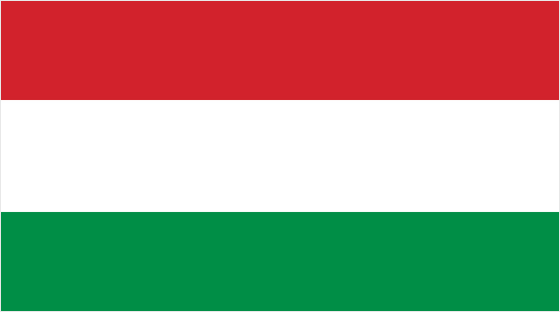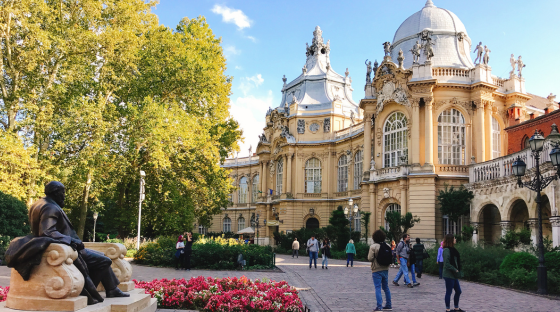-
Services
-
Software Project Delivery
-
Services
-
Solutions
-
Technologies
-
-
Network
-
Discover
-
Regions
-
Industries
-
Must-Read Guide
-
2026 Global Software Outsourcing Rates and Trends GuideDiscover why rates are just one aspect of the Accelerance Global Software Outsourcing Rates & Trends Guide, which offers valuable insights into the software development landscape.
-
-
-
Resources
-
Our Resources
-
Newest White paper
-
Aviation Ecosystem Modernization: A Holistic Approach for Meaningful TransformationModernize aviation by integrating people, processes, technology, and data
-
-
New eBook
-
 The True Cost of Software DevelopmentHidden costs can wreck your budget. Our new eBook breaks down the true cost of outsourcing—get your copy to stay ahead.
The True Cost of Software DevelopmentHidden costs can wreck your budget. Our new eBook breaks down the true cost of outsourcing—get your copy to stay ahead.
-
-
Featured White paper
-
Flow & Process OptimizationIn this white paper, you'll learn to streamline workflows, improve change management, and accelerate results.
-
-
-
About
-
About Accelerance
-
Our History
-
Accelerance: Our HistoryThere's great talent everywhere and great teams everywhere, which is the basis of the Accelerance model.
-
-
Software Without Borders
-
New Episode Every Week!Tune into our podcast Software Without Borders, the essential listen for technology leaders and business owners in the software sector who crave insights from the industry’s top minds.
-
-
Andy's Book
-
Synergea: A Blueprint for Building Effective, Globally Distributed Teams in the New Era of Software DevelopmentPeople are first and locations are secondary when it comes to software development success.
-
-
- Our Clients
Hungary

Overview
Hungary has made a smooth transition to a free-market economy and was quick to modernize its telecom infrastructure. It is the region’s biggest electronics producer and in the past two decades has become a significant center for mobile tech and information security. While training and retaining sufficient tech talent to meet demand remains a challenge, its software development sector is steadily growing and is forecast to earn $1 billion in 2026.
A relatively small nation of diverse and beautiful landscapes, the country is renowned for its abundance of thermal and mineral water sources. Hungary is home to the second largest thermal lake in the world (Lake Hévíz), the largest lake in Central Europe (Lake Balaton) and the largest natural grassland in Europe (Hortobágy), as well as approximately 10 million citizens.
Regarded as somewhat of an outlier in the 27-member European Union (and of the NATO military alliance), Hungary took up the six-month rotation presidency of the EU council of ministers in July 2024. Since Russia invaded Ukraine in February 2022, Prime Minister Viktor Orban has been essentially a lone voice in pushing back against Western efforts to come to Kyiv’s aid.
The Accelerance Global Network is the most curated list of high-quality global teams ever assembled.
85
Developers
Total number of developers in our certified partner network by country
1
Certified Partner
Total number of certified partners in our global network by country.
10hrs
Time Travel (From NY)
Average flight time from NY to the major cities in the country.
39
Partner Innovation capability
The score reflects investment in STEM progrms and IT funding by country.
84
Partner Skill Level
Level of workforce skills and quality of education, including factors such as digital literacy, interpersonal skills, etc.
48
Partner Global Competitiveness
National productivity based on 12 core pillars, including government policy, infrastructure, economic stability, etc.
High
Software Outsourcing Readiness
Overall rating, based on the maturity of the tech sector, socio-political conditions, and on-the-ground research by Accelerance.

Talent Pool & Education
Hungary has an innovation-oriented mindset and a vibrant technology start-up ecosystem. Revenue from the software sector is forecast to grow at an annual rate of 5.75% through to 2028, led by enterprise software and application development software. Underlying growth drivers include increasing adoption of cloud-based software solutions and the rise of mobile applications, particularly in the gaming and entertainment sectors. Hungary’s relatively low cost of living compared to other countries in the region has made it an attractive location for software development and outsourcing.
Ensuring a continuous pipeline of talent to support this growth, however, remains a challenge. Experienced professionals in the IT and engineering sector are in huge demand, exacerbated by near full employment, a shortfall in graduates feeding into the workforce, and the loss of talent offshore. Initiatives aimed at addressing this include a program by the Ministry of Technology and Industry providing financial support to companies or government agencies providing part-time employment to young people aged 16-25 who are enrolled at high school or university.
Language
Hungarian is the official language. English is not normally taught in schools but is spoken by a quarter of the population, most commonly by those in the business community. Programmers with experience of working with international clients are likely to speak English. It is also more widespread in tourist areas and major cities, such as Budapest, and among the younger generation.

Economic Outlook
The economy contracted in 2023 on the back of higher energy prices and financing costs, and subdued exports reflecting weakening global demand. Output fell in most sectors with the notable exception of agriculture, which had recovered from severe droughts the previous year. Overall growth returned in the first quarter of 2024 and European Union forecasters are predicting a steady rise in GDP into 2025.
The strengthening economy is expected to be supported by real growth in wages. This reflects a tight labor market and a return to normal settings for companies that had responded to declining output in 2023 by reducing employee hours. The squeeze on spending during the period of recession, along with easing of food and energy prices, saw the inflation rate fall from a peak of 25.9% in the first quarter of 2023 to 3.6% a year later.
Hungary’s main industries are pharmaceuticals, food processing, IT, information security, motor vehicles, machinery, metallurgy, chemicals, mobile technology and electrical goods. Tourism and the industrial sector play an important part in the economy, while the services sector contributes approximately half of GDP.
Political Conditions
The country is led by populist right-wing politician Viktor Orbán, who first came to power in 2010. His nationalist Fidesz Party gained a strong mandate in the last parliamentary election in 2022. His popularity may be waning, however, if the result of the June 2024 European Union elections (in which each country votes for domestic political parties) are a guide. Although the Fidesz Party gained 40% of the vote, this was its worst result in an European Parliament election.
Orban’s government is at odds with European Union colleagues on migration and the war in Ukraine. His stonewalling of support for the beleagured country has exasperated Hungary’s allies. Seeing it as an example of the rise in authoritarianism in Europe, the European Parliament passed a resolution stating that Hungary has become a "hybrid regime of electoral autocracy" under Orbán.
Orbán prefers the descriptors "illiberal democracy" and "Christian liberty" and has said authoritarian systems such as those in China, Turkey and Russia are a more appropriate model than Western liberal democracies. He has endorsed Donald Trump in the 2024 presidential election and spoken in favor of a peace plan proposed by Russian leader Vladamir Putin. Hungary is the first and only EU member state to be considered only “partly free” by the think tank Freedom House. The next parliamentary elections are due in 2026.
Learn more about our customer stories.
Looking for a customer story in a specific technology or industry? Discover compelling customer narratives within a specific technology or industry that resonate with your unique software development needs.
